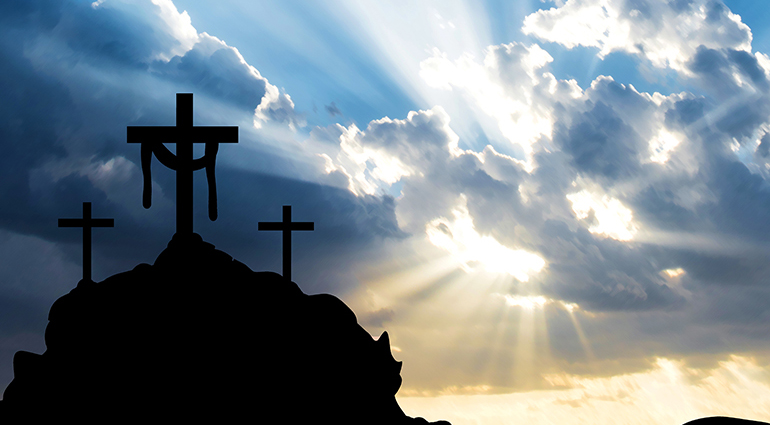Read: John 11:25-44 | Bible in a Year: 1 Samuel 27-29; Luke 13:1-22
I am the resurrection and the life. He who believes in Me, though he may die, he shall live. —John 11:25
Death may steal from us the ones we love, but for followers of Christ the separation is only temporary. The resurrection of Jesus assures us that just as death could not hold Him, so too the tomb cannot cling to the children, parents, friends, and companions who have died before us. Christ’s resurrection is the foundation of our hope.
American evangelist D. L. Moody (1837-1899) told of a soldier at the battle of Inkerman (Crimean War, 1854) who was somehow able to crawl back to his tent after he was shot. When he was later found, he was lying face-down, his open Bible before him, his hand stuck to one of the pages by his blood which covered it. When his hand was lifted, some of the words from the printed page were clearly visible on it. The verse was this: “I am the resurrection and the life. He who believes in Me, though he may die, he shall live” (Jn. 11:25). Said Moody, “I want a religion like that, which can comfort even in death, and can unite me with my loved ones. What gloom and darkness would settle upon this world were it not for the glorious doctrine of the resurrection!”
If you are grieving, find your comfort in this: Because Jesus lives, we shall live also!
Crown Him the Lord of life:
Who triumphed o’er the grave,
Who rose victorious to the strife
For those He came to save. —Bridges
Who triumphed o’er the grave,
Who rose victorious to the strife
For those He came to save. —Bridges
The resurrection is God’s answer of hope to man’s cry of despair.







